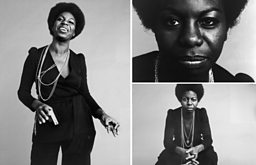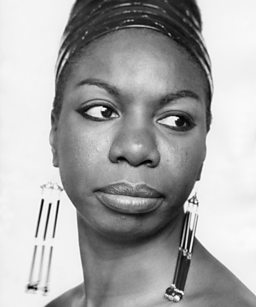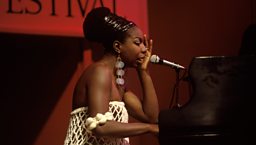Dr Simone will see you now
27 August 2019
To encounter Nina Simone was an unforgettable experience. Writer and critic BRIAN MORTON recalls two eventful meetings with the legendary singer.

Dr Simone was angry, but there was no storm. It was more terrible than that. She sat rigid in her chair, silhouetted against the Mediterranean light.
It would have been tempting to enliven a feature piece by saying she resembled a piece of Shona sculpture but that's exactly the kind of description – anything that made her seem an object of attention rather than the centre of attention – that she objected to, to say nothing of its slightly patronising, National Geographic cast. And anyone who caught a glimpse of those flashing eyes would have been aware that there was plenty of turmoil inside.
I'd been warned more than once about the Simone temper
I'd been warned more than once about the Simone temper and like everyone else had heard the stories about her once trying to shoot a promoter or a manager.
When it was tactfully suggested that this was merely intended as warning she had it clear. “I was trying to kill him. I missed.”
I came into this not entirely unprepared and not entirely unscarred. The middle joint of my thumb bore (and still does) a thin scar from when Nina Simone, at a restaurant table in London, drove a knife downwards and into my hand.
BBC Sounds: Nina Simone tribute
-
![]()
Nina Simone: Mississippi Goddam
A homage to the jazz giant led by Jules Buckley.

It's the kind of story that could be dined out on. But the truth was more banal. I was simply reaching for something on the table. She was simply making a point, and punctuating it with whatever was at hand, which happened to be a steak knife. Nearby diners raised their volume and paid detailed attention to their plates.
Simone was simply making a point... with whatever was at hand, which happened to be a steak knife
The irony of Nina Simone, or more strictly of the Nina Simone legend, is that the fierce intelligence she brought to every subject and every encounter tended to get lost behind easy headlines about wild behaviour and eccentricity.
I found her formidably knowledgeable, passionate about the failings as well as the great promise of the civil rights movement and its leadership in America and a brilliant commentator on the evolution of African-American literature.
Her insights into the public career of someone like poet Langston Hughes, a kind of unofficial black laureate, were unflinching by sympathetic. She had undergone a similar process herself.
Simone's argument was that if a woman was a singer she was still too easily shaped to an entertainment model. Even her friend Miriam Makeba had found herself in that situation.
If a woman played an instrument, she could be patronisingly ignored, on the assumption that she was constitutionally and temperamentally unfitted to reach the heights of technical facility accessible to a man.
But singing and playing piano together was a different matter. Simone likened it to driving a car and feeling stronger and more potent for having that hard shell of authority around you.
My impression of her might sound counter-intuitive, or even counter-factual, but I sensed that she was at bottom an extremely gentle soul who perhaps over-reacted to provocation.
I sensed that Simone was at bottom an extremely gentle soul who perhaps over-reacted to provocation
Her not always successfully concealed mental distress was less a pathology than a reaction to the sheer strangeness of the world she had come up in, a world in which executives thought nothing of putting a black woman in an evening gown and asking her to sing 'protest' songs against the establishment.
Where others might have baulked and refused, Simone attempted to do what was asked of her and to bridge the contradictions so imposed.
I sense that her entire life was a confrontation with illogic and paradox. To say of her that she was a woman of contrasts is so self-evident as to be empty of meaning.
She was, in fact, remarkably of a piece and utterly unchanging, and it's that that makes her such a powerful barometer for her age. And not just set to STORMY.
A version of this article was originally published on 26 May 2015.


Related Links
More from BBC Arts
-
![]()
Picasso’s ex-factor
Who are the six women who shaped his life and work?
-
![]()
Quiz: Picasso or pixel?
Can you separate the AI fakes from genuine paintings by Pablo Picasso?
-
![]()
Frida: Fiery, fierce and passionate
The extraordinary life of Mexican artist Frida Kahlo, in her own words
-
![]()
Proms 2023: The best bits
From Yuja Wang to Northern Soul, handpicked stand-out moments from this year's Proms





